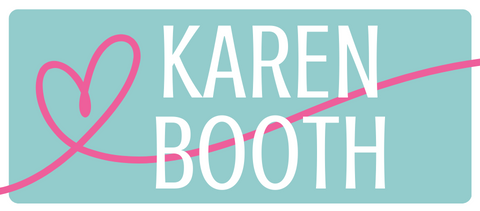
For Father’s Day, “Play some Big Richard, Dad.”
Posted on June 15, 2011 by Karen Booth
In celebration of Father’s Day, Tom Maxwell shares a sweet and funny essay about music and his daughter, Evelyn.
My daughter Evelyn has an incredible ear. For me, musical pitch has always been a subjective exercise, an approximation. I consider myself a vocalist, not a singer. If I have to pick out one of my songs on the piano, the melody flies out of my voice. I become unsure of the intervals and sink into a quagmire of relativism. Evelyn has no such issues.
Many years ago, I drove an old Mercedes diesel. If you turned on the ignition without first putting on your seatbelt, the car made an awful, buzzing alarm sound, like an old digital clock. It happened once, as I took Evelyn home from karate class when she was three.
“That’s an ugly noise,” she said.
“Yes, it is,” I responded, then seized upon a teachable moment. “You know, Evelyn, I bet we could go home and find that sound on a piano key.” I was trying to show her that there was music in everything; that even the car buzzer has a harmonic base, a corresponding piano key. I was proud of my insight and parental leadership and expected to elicit an “a-ha” moment.
“Oh, Dad,” she said. “You’d have to play four keys all next to each other to make that sound.”
Blown out of the water by a three-year-old. Evelyn already understood about dissonance and micro-tonality. She could also, by this time, pick out individual instruments in a recording, and name them. I know a lot of grown-ups who can’t do this.
I began to introduce Evelyn to the music I listened to. The Beatles got a lukewarm reception, aside from “Strawberry Fields Forever.” Little Richard was another story. I played his early, raucous stuff – “Keep A Knockin’,” “Good Golly Miss Molly” – filled with shrieks and distorted tenor sax. Evelyn loved it. “Play some Big Richard,” she’d say.
“Honey,” I’d say, “his name is Little Richard.”
“That shouldn’t be his name, dad. His music is so great, he should be called Big Richard.” I agreed.
Evelyn took to the piano quickly, picking out songs by ear. My attempts to teach her some fundamentals were ignored. She’s going to do it the hard way, I thought – the one aspect of me I didn’t want her to inherit. In lieu of learning scales at the age of five, she’d offer to play me “Twinkle, Twinkle Little Star” with her toes. Naturally, I was impressed, and then chastised myself for rewarding such indiscipline. As the years progressed, Evelyn has learned music as a social lubricant, a palliative and a way of connecting with her family and friends. She saw how much my pals loved to hear Elliot Smith’s “Waltz No. 2” on the screen porch after hours, and learned it on piano. She heard Jan Johansson’s “Visa Från Utanmyra” so many times that it too appeared under her fingers. She picks out Queen’s “Under Pressure,” the Jeopardy! theme and Lady Gaga songs with equal relish and facility. I know that much of what she does is to please, to engage me when I turn inward. I also know that through this, she’s finding her own voice. She will find it by listening to, and internalizing, great music. Now, at ten, her piano ability is beginning to outstrip mine, and she’s composing her first song. This, friends, is where it gets good.
I can’t teach her anything. First off, I’m her father, a natural disqualifier. Secondly, I’m prone to exasperation. Thirdly, she’s too much like me – working diligently on only that which interests her, while studiously avoiding routine. She will have to invent, and reinvent, her own musical wheel. My teaching, I’ve come to realize, is more indirect. She sees the joy on my face when I rehearse or play songs for friends. She hears what I listen to, from the Bach Suites for Unaccompanied Cello that was the soundtrack to her birth, or Fats Waller. (“I want to play like him,” she once told me. “Better get started now,” I advised. The man was a hell of a piano player.)
When I sit beside her at the piano, and really inhabit the moment, I am made aware of miracle upon miracle. First, the miracle that she even came into the world, and has grown into such a self-possessed, loving, marvelous person. Then there is the miracle of communicating with her musically as well as emotionally. Often, when she stays with her mom, she’ll call out of the blue. “Got a minute?” she’ll ask. “Listen to what I’ve learned on the piano!” I will, and we’ll talk about this and that. Sometimes we’ll duet over the phone (the Doctor Who theme is a favorite). I will be nonchalant, but when we hang up it will always take me a moment to recover. I will stand stock still, feeling the joy and gratitude radiating through my body. Perhaps, as the coming years bring Evelyn into sullen adolescence, these calls will stop coming. But for now, there’s much to learn, and practice, and share.
 Karen Booth
Karen Booth